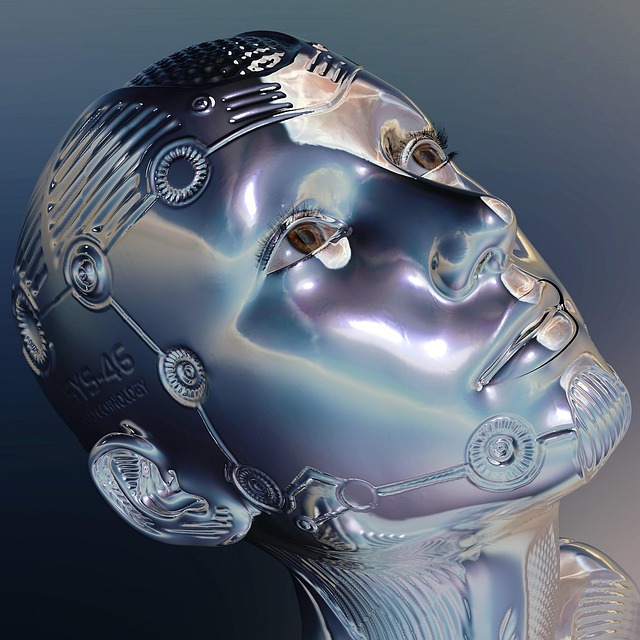“`html
Introduction to AI’s Influence
Artificial Intelligence (AI) has woven itself into the very fabric of modern society, reshaping various sectors and altering the way we interact with technology. One area where the impact is particularly profound is healthcare. From diagnostics to patient care, AI technology is revolutionizing how medical professionals approach their work, leading to improved outcomes and enhanced efficiency.
AI in Diagnostics
In the realm of diagnostics, AI systems are proving to be game-changers. Algorithms designed to analyze medical images, such as X-rays and MRIs, are increasingly demonstrating accuracy levels that rival those of seasoned radiologists. By leveraging deep learning techniques, these systems can identify anomalies with remarkable precision, often catching conditions in their early stages when treatment is most effective.
Enhancing Accuracy and Speed
The integration of AI in diagnostic processes significantly enhances both accuracy and speed. Traditional methods often involve a lengthy review process, during which human error may occur. Conversely, AI can process vast amounts of data in seconds, providing immediate results. This rapid analysis not only aids in timely diagnosis but also alleviates the burden on healthcare professionals, allowing them to focus on patient care rather than administrative tasks.
Reducing Costs and Improving Access
Cost reduction is another critical benefit of AI in diagnostics. By decreasing the need for multiple tests and consultations, AI can streamline the diagnostic process, which ultimately lowers healthcare costs. Moreover, AI’s ability to democratize access to high-quality diagnostic tools means that underserved populations can benefit from advanced medical technology. Telemedicine platforms powered by AI can deliver remote diagnostics, making healthcare accessible to those in rural or economically disadvantaged areas.
AI in Treatment Plans
Beyond diagnostics, AI is also transforming how treatment plans are developed. Personalized medicine, which tailors treatment to individual patient characteristics, is becoming increasingly feasible thanks to AI. Machine learning algorithms can analyze patient data, including genetic information, to recommend the most effective treatments.
Data-Driven Decisions
The ability to make data-driven decisions is a significant advancement in the medical field. AI systems can sift through mountains of clinical data, uncovering patterns that human practitioners might overlook. Consequently, doctors can make informed decisions about treatment options, leading to better patient outcomes. This level of personalization ensures that therapies are not only effective but also minimize potential side effects.
Predictive Analytics and Preventative Care
Predictive analytics is another area where AI shines. By analyzing historical health data, AI can identify patients at risk of developing certain conditions. This proactive approach enables healthcare providers to implement preventative measures, potentially averting serious health issues before they arise. As a result, patients can enjoy a better quality of life, and healthcare systems can reduce the strain on resources.
AI in Patient Care
Patient care is yet another domain where AI is making strides. Virtual health assistants and chatbots are becoming commonplace, providing patients with immediate responses to their inquiries. These tools enhance the patient experience by offering 24/7 support, which is especially valuable in managing chronic conditions.
Improving Patient Engagement
Engagement is crucial in healthcare, and AI tools are helping to foster a more interactive relationship between patients and providers. By facilitating communication, these technologies empower patients to take an active role in their health management. Virtual assistants can remind patients about medications, schedule appointments, and even provide educational resources tailored to their specific conditions.
Emotional Support through AI
Interestingly, AI is also stepping into the realm of emotional support. AI-driven applications can provide mental health resources, offering a non-judgmental space for individuals to express their feelings. While these tools are not a replacement for human interaction, they serve as a valuable supplement, especially in times of crisis when immediate support may be needed.
Challenges and Considerations
Despite its many advantages, the integration of AI into healthcare is not without challenges. Ethical considerations regarding patient privacy and data security are paramount. As AI systems require access to sensitive health information, ensuring that this data is protected against breaches is crucial.
Addressing Bias in AI
Bias in AI algorithms is another concern that must be addressed. If the data used to train AI systems is not representative of the diverse population, the resulting algorithms may produce skewed outcomes. This can lead to disparities in care, particularly for marginalized communities. Ongoing efforts to audit and refine AI systems are essential to mitigate these risks.
The Human Element
Lastly, the human element in healthcare cannot be overlooked. While AI can enhance efficiency and accuracy, it cannot replicate the empathy and compassion that healthcare professionals provide. Striking a balance between AI and human care will be critical as we navigate the future of healthcare.
Conclusion: A New Era in Healthcare
As AI technology continues to evolve, its impact on healthcare is profound and multifaceted. From diagnostics to treatment and patient care, AI is transforming the landscape of medical practice. While challenges remain, the potential benefits are immense, promising a future where healthcare is more accurate, accessible, and personalized. Embracing these advancements while addressing ethical considerations will be key to harnessing the full power of AI in our society. The journey ahead is exciting, and the possibilities are boundless.
“`

